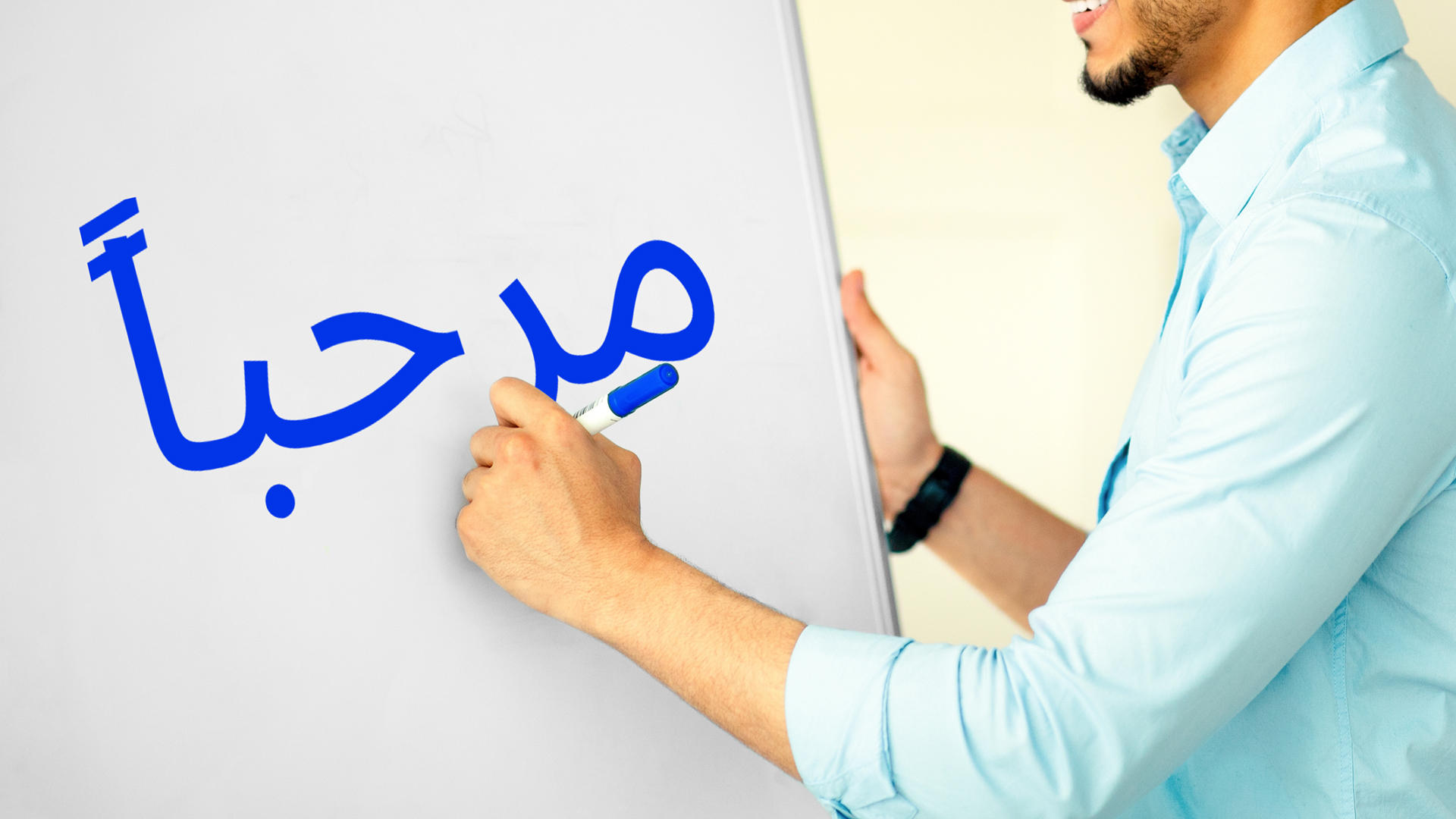If you’re wondering ‘Which Arabic should I learn?’ the answer is: ‘It depends on your goal.’
Learning Arabic opens the door to a world of over 400 million speakers. Yet there’s a twist: Arabic is inherently diglossic. At The Bertamini Language School, we combine Modern Standard Arabic (MSA) with everyday dialects, so you can communicate naturally and truly understand the culture of each region.
Written Arabic: The language of literature, media, and diplomacy (MSA)
Spoken Arabic: The dialects used in daily life — from Beirut to Marrakesh
With our expertise in Asian & Arabic Studies, The Bertamini Language School helps you choose the form of Arabic that fits your goals.
Modern Standard Arabic (MSA) – The “Formal” Arabic
What it is: Modern Standard Arabic, or Fus-ha, is the official, standardised form of the language. It serves as the lingua franca across the Arab world — the language everyone understands, even if they don’t speak it in daily life.
When do you need MSA? (The Language of Academia & News)
| Goal | Why MSA is essential | Bertamini Program |
|---|---|---|
| Exams & Certifications | It’s the language of official exams (Nablus – University of Piraeus) and diplomacy (UN) | Intensive preparation for Nablus (A1–C2) & embassy certifications |
| Academic Use | For lectures, research papers, and academic work at Arabic universities | Specialised Academic Terminology courses |
| Media | The language of news, official speeches, and literature across the Arab world | Authentic media materials and exercises for comprehension |
Everyday Dialects – The “Street Language”
What they are: Dialects are the language of everyday life. Though based on MSA, they differ in vocabulary, grammar, and pronunciation.
When do you need a dialect? (The Language of Daily Life)
| Goal | Focus / Preparation | Why |
|---|---|---|
| Initial Communication (Levant) | Introductory elements of Levantine Arabic for basic interaction in Lebanon, Jordan, Syria, Palestine | Useful across the broader Middle East |
| Daily Conversation | Emphasis on spoken practice and social etiquette | Essential for interacting with locals in markets, streets, and cafés |
| Work / Internships | Local market dialect (if targeting a specific country) | Needed to understand formal work practices and subtle social cues that determine success |
Professional Etiquette & Cultural Nuances
Mastering the language is only the beginning. Cultural understanding is what makes communication effective.
Proper Address:
Titles like Sayed (Mr.), Doctor, Sheikh, or Ustaz (Teacher) show respect and awareness of social hierarchies.
Being overly informal at first meetings can be seen as rude.
Hospitality:
Hospitality is sacred.
When offered coffee, tea, or food, it’s polite to accept.
If you must decline, do so gently, usually after the third offer.
“Shukran, mumkin ba‘dēn” (thanks, maybe later) is always a safe choice.
Gestures:
Handshakes depend on the other person’s gender and consent.
Objects (money, business cards, gifts) are always given and received with the right hand.
Touching a child’s head, even with good intentions, may be considered impolite in some areas.
How We Teach at The Bertamini Language School
Learning Arabic here is holistic. You don’t just study theory — you learn to communicate confidently and respectfully in real-life situations.
In class:
- Practice real dialogues — from ordering coffee in Beirut to addressing a professor in Cairo
- Explore cultural scenarios to understand the mindset behind the words
- Work with authentic news, podcasts, and interviews to get used to natural speech
You don’t just learn Arabic; you learn how to live it.
The Bertamini Selection Guide
At The Bertamini Language School, we prepare you to use both MSA and dialects so you’re fully functional.
| Goal / Destination | Recommended Focus | Certification |
|---|---|---|
| Academic / Diplomatic Career | MSA 80% + Basic exposure to Dialects 20% | Nablus (University of Piraeus) |
| Studies or Erasmus in Arab Countries | Balanced training with emphasis on MSA and local dialect | Nablus or Embassy Certifications |
| Business & Professional Training | Balanced MSA/dialect mix with focus on Professional Terminology | Bertamini Certificate |
| Prospective Asian Studies Student | Intensive MSA preparation | Nablus (for university entry) |
Why Bertamini Bridges the Gap
- Dual Preparation: We train you in both forms of Arabic (MSA and Dialects)
- Cultural Adaptation: Our instructors prepare you for etiquette, customs, and social nuances
- Official Exam Prep: For Arabic exams organised by recognised bodies (Nablus – University of Piraeus & Egyptian Cultural Centre)
Don’t just learn the theory — experience Arabic in real life Discover which Arabic to learn at The Bertamini Language School.









